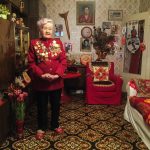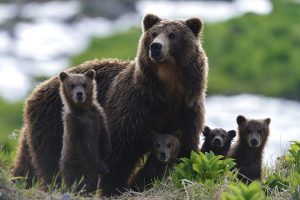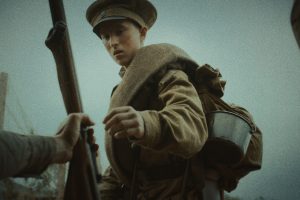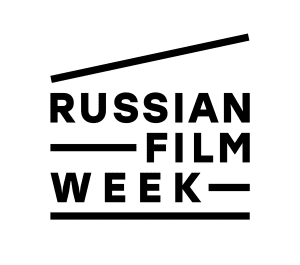The fourth annual Russian Film Week is back at various major venues in London from November 24 to December 1, 2019
The eight-day festival brings the latest Russian films to London with the aim of providing a varied picture of Russian culture across this enormous nation. This year’s programme showcases a glittering array of thirty seven features and 18 shorts including several documentaries. The celebration culminates in the Golden Unicorn Awards.
The newly refurbished Odeon Luxe Leicester Square will host the world premiere of Klim Shipenko’s comedy The Peasant. It sees a modern young Moscovite being sent to a ‘boot camp’ of sorts, where he is forced to live according to the peasant traditions of the 19th century.
 Woman’s Day is one of several female-directed features in this year’s line-up. Dolya Gavanski’s feature debut shares experiences from women in the USSR who reveal their lives from the 1917 revolution to the present day. Intimate, surprising, funny, eccentric, painful and contradictory – this is the unknown history of Russian feminism. Based on the filmmaker’s own extensive research, the film focuses on rare archive footage of women experiencing at first hand the siege of Leningrad in subzero temperatures, living in communal flats, smuggling forbidden literature, flying into Space, performing the perfect Soviet ballet pirouette or even giving a new name to a husband, not to mention the political and cultural complexities. These women were brought up in a culture that had officially proclaimed women equal to men. They were told they could achieve it all. So what was their reality?
Woman’s Day is one of several female-directed features in this year’s line-up. Dolya Gavanski’s feature debut shares experiences from women in the USSR who reveal their lives from the 1917 revolution to the present day. Intimate, surprising, funny, eccentric, painful and contradictory – this is the unknown history of Russian feminism. Based on the filmmaker’s own extensive research, the film focuses on rare archive footage of women experiencing at first hand the siege of Leningrad in subzero temperatures, living in communal flats, smuggling forbidden literature, flying into Space, performing the perfect Soviet ballet pirouette or even giving a new name to a husband, not to mention the political and cultural complexities. These women were brought up in a culture that had officially proclaimed women equal to men. They were told they could achieve it all. So what was their reality?
Russian filmmaker Eva Bass makes her feature debut with an impressive drama Kettle that contemplates freewill in the face of desperate circumstances. In Moscow, twenty five year old Savva is a misfit and intellectual, bored with his life running a computer club called ‘The Kettle’. Savva’s existential crisis deepens after his old friend Roman commits suicide. Bass directs with confidence in this inquiring drama written by Nikita Kasimtsev.
 Irina Zhuravleva and Vladislav Grishin have developed a meditative approach to studying the lives of bears in the South Kamchatka Federal Sanctuary. In Kamchatka Bears: Life Begins, music, ambient sounds and the absence of a human voices makes this a chance to experience nature at its purest form.
Irina Zhuravleva and Vladislav Grishin have developed a meditative approach to studying the lives of bears in the South Kamchatka Federal Sanctuary. In Kamchatka Bears: Life Begins, music, ambient sounds and the absence of a human voices makes this a chance to experience nature at its purest form.
Meanwhile, war is experienced at first hand in Andrey Volgin’s gripping action drama The Balkan Line. Set in Yugoslavia, 1999, a young commander is tasked to take control of the Slatina airport in Kosovo and hold it until the arrival of the reinforcements discovers his girlfriend is among the hostages at the airport.
Critically acclaimed Uzbek filmmaker Yusup Razykov won the FIPRESCI award at Karlovy Vary several years ago for Shame his claustrophobic drama about an isolated community of women. This year the Russian Critics’ Circle awarded his a gong for his drama Kerosin. His second film this year is Sabre Dance a wartime drama set in the city of Molotov in 1942 where the Leningrad Academic Theatre of Opera and Ballet (after Kirov) has been evacuated during the stressful preparations for the premiere of the Gayane ballet. The world of a theatre in evacuation is mysterious and rather cold. The privations of war give rise to half-starved ballerinas, corps de ballet members, who turn into “Pink Ladies” on stage along with performances in hospitals, defence factories and endless rehearsals. Final efforts to create Gayane coincide with the creation of the first tact of the 2nd symphony, often overlapping. Meanwhile, in 8 hours, Khachaturian dashes off his most performed creation.
 Great Poetry is a portrait of loneliness, friendship and betrayal that sees two men clinging together for survival as cash collectors in the outskirts of Moscow where their time is spent moving money for other people and gaming on cockfights at a dorm of migrant workers. Dreaming of a better future, they enrol on a poetry class but sadly find it easier to make a living as petty criminals in this wistful reflection on 19th ideals. Aleksandr Kutznetsov was awarded Best Actor or his performance in the film that also won Lungin Best Director at this year’s Sochi Russian Open Film Festival
Great Poetry is a portrait of loneliness, friendship and betrayal that sees two men clinging together for survival as cash collectors in the outskirts of Moscow where their time is spent moving money for other people and gaming on cockfights at a dorm of migrant workers. Dreaming of a better future, they enrol on a poetry class but sadly find it easier to make a living as petty criminals in this wistful reflection on 19th ideals. Aleksandr Kutznetsov was awarded Best Actor or his performance in the film that also won Lungin Best Director at this year’s Sochi Russian Open Film Festival
Although Yury Bykov’s The Factory is firmly set in the world of Russian capitalism, it harks back to the glory of the revolution. Many of the workers in a remote industrial factory have been employed there before the change from state regulation to capitalist privatisation. So when owner Kalugin, a well-connected local oligarch, announces the redundancy, a group of workers who haven’t been paid for months kidnap him for a ransom. Led by the mysterious Alexei whose motives are far from clear, the heist doesn’t end well. Kalugin’s private security guards and a police SWAT team quickly have the building surrounded and the comrades are forced to experience the coal face of their so-called camaraderie.
 Alexander Zolotukhin’s elegiac portrait of a young Russian soldier pieces together the early days of the The First World War when tragedy strikes even before glory is allowed to show its face. Three decades later, at the beginning of the Second World War, Rachmaninoff will create “Symphonic dances” op.45, an even more grand and vigorous work which was also his swansong. A tender tragedy suffused with courage and melancholy.
Alexander Zolotukhin’s elegiac portrait of a young Russian soldier pieces together the early days of the The First World War when tragedy strikes even before glory is allowed to show its face. Three decades later, at the beginning of the Second World War, Rachmaninoff will create “Symphonic dances” op.45, an even more grand and vigorous work which was also his swansong. A tender tragedy suffused with courage and melancholy.
Russian Film Week and The Golden Unicorn Awards was founded in 2016 by Filip Perkon (Perkon Productions Ltd.). The festival is supported by the Russian Ministry of Culture.
https://youtu.be/D-Rt3ENvVLo

 Woman’s Day
Woman’s Day Irina Zhuravleva and Vladislav Grishin have developed a meditative approach to studying the lives of bears in the South Kamchatka Federal Sanctuary. In Kamchatka Bears: Life Begins, music, ambient sounds and the absence of a human voices makes this a chance to experience nature at its purest form.
Irina Zhuravleva and Vladislav Grishin have developed a meditative approach to studying the lives of bears in the South Kamchatka Federal Sanctuary. In Kamchatka Bears: Life Begins, music, ambient sounds and the absence of a human voices makes this a chance to experience nature at its purest form. Great Poetry is a portrait of loneliness, friendship and betrayal that sees two men clinging together for survival as cash collectors in the outskirts of Moscow where their time is spent moving money for other people and gaming on cockfights at a dorm of migrant workers. Dreaming of a better future, they enrol on a poetry class but sadly find it easier to make a living as petty criminals in this wistful reflection on 19th ideals. Aleksandr Kutznetsov was awarded Best Actor or his performance in the film that also won Lungin Best Director at this year’s Sochi Russian Open Film Festival
Great Poetry is a portrait of loneliness, friendship and betrayal that sees two men clinging together for survival as cash collectors in the outskirts of Moscow where their time is spent moving money for other people and gaming on cockfights at a dorm of migrant workers. Dreaming of a better future, they enrol on a poetry class but sadly find it easier to make a living as petty criminals in this wistful reflection on 19th ideals. Aleksandr Kutznetsov was awarded Best Actor or his performance in the film that also won Lungin Best Director at this year’s Sochi Russian Open Film Festival Alexander Zolotukhin’s elegiac portrait of a young Russian soldier pieces together the early days of the The First World War when tragedy strikes even before glory is allowed to show its face. Three decades later, at the beginning of the Second World War, Rachmaninoff will create “Symphonic dances” op.45, an even more grand and vigorous work which was also his swansong. A tender tragedy suffused with courage and melancholy.
Alexander Zolotukhin’s elegiac portrait of a young Russian soldier pieces together the early days of the The First World War when tragedy strikes even before glory is allowed to show its face. Three decades later, at the beginning of the Second World War, Rachmaninoff will create “Symphonic dances” op.45, an even more grand and vigorous work which was also his swansong. A tender tragedy suffused with courage and melancholy. Dir.: Aleksey Fedorchenko; Cast: Marta Kozlava; Russia 2018, 74 min.
Dir.: Aleksey Fedorchenko; Cast: Marta Kozlava; Russia 2018, 74 min.